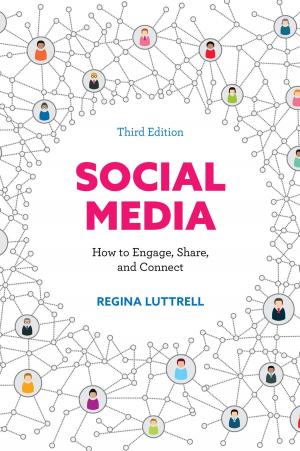Leadership in Academic Libraries Today
Connecting Theory to Practice
Nonfiction, Reference & Language, Language Arts, Library & Information Services| Author: | ISBN: | 9781442232600 | |
| Publisher: | Rowman & Littlefield Publishers | Publication: | March 14, 2014 |
| Imprint: | Rowman & Littlefield Publishers | Language: | English |
| Author: | |
| ISBN: | 9781442232600 |
| Publisher: | Rowman & Littlefield Publishers |
| Publication: | March 14, 2014 |
| Imprint: | Rowman & Littlefield Publishers |
| Language: | English |
Leadership in Academic Libraries highlights model examples of the move from leadership theory into actual practice. A consideration of leadership theories provides a working vocabulary to facilitate discussions of abstract concepts, while specific topical investigations and case studies illustrate those concepts and show the manner in which theories play out in practice. Chapter authors speak from experience as well as theoretical grounding, and include practitioners, researchers, and formal and informal leaders. Topics include transformational leadership across generations; developing a research agenda in library leadership; methodologies for studying library leadership; connections between leadership models and library-focused research; engaging with business, psychology, and educational administration literature; leadership styles; organizational culture; the role of mentoring in leadership; and the role of women in academic library leadership. Two chapters highlight the dichotomy between positional leadership and socially constructed leadership roles. The research methods used include case study, survey, and action research. Extensive bibliographies for each chapter provide a solid foundation for further research.
Leadership in Academic Libraries highlights model examples of the move from leadership theory into actual practice. A consideration of leadership theories provides a working vocabulary to facilitate discussions of abstract concepts, while specific topical investigations and case studies illustrate those concepts and show the manner in which theories play out in practice. Chapter authors speak from experience as well as theoretical grounding, and include practitioners, researchers, and formal and informal leaders. Topics include transformational leadership across generations; developing a research agenda in library leadership; methodologies for studying library leadership; connections between leadership models and library-focused research; engaging with business, psychology, and educational administration literature; leadership styles; organizational culture; the role of mentoring in leadership; and the role of women in academic library leadership. Two chapters highlight the dichotomy between positional leadership and socially constructed leadership roles. The research methods used include case study, survey, and action research. Extensive bibliographies for each chapter provide a solid foundation for further research.















